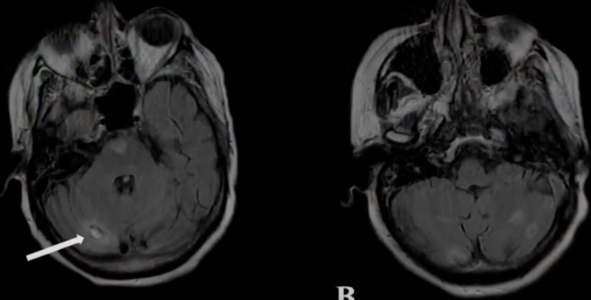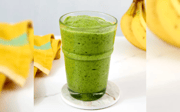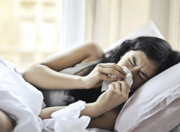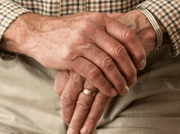Are you putting yourself at risk? Texas woman dies after using tap water for routine rinse
- Replies 1
At The GrayVine, we know that staying healthy sometimes means embracing new habits—like using a neti pot or nasal rinse to clear out those pesky sinuses.
But what if a simple act of self-care could turn deadly?
That’s the chilling reality behind a recent tragedy in Texas, where a 71-year-old woman lost her life to a rare, brain-eating amoeba after rinsing her nose. Let’s unpack what happened, why it matters, and—most importantly—how you can protect yourself and your loved ones.
A Rare but Deadly Infection
The culprit in this heartbreaking story is Naegleria fowleri, a single-celled organism that’s as tiny as it is terrifying.
This “brain-eating amoeba” thrives in warm freshwater environments—think lakes, rivers, and, in rare cases, inadequately treated tap water.
While infections are extremely rare (the US sees only about three cases per year), the consequences are almost always fatal. Of the roughly 160 cases ever recorded in the US, only a handful of people have survived.
In the Texas case, the woman developed severe neurological symptoms—fever, headache, confusion—just four days after using a nasal irrigation device filled with tap water from her RV. Despite medical intervention, her condition rapidly deteriorated.

She suffered seizures and died eight days after symptoms began. Lab tests confirmed the presence of Naegleria fowleri in her brain and spinal fluid.
How Does This Amoeba Infect People?
Here’s the crucial detail: Naegleria fowleri can only infect you through your nose.
When contaminated water enters the nasal passages, the amoeba travels up the olfactory nerve straight to the brain, where it causes a devastating infection called primary amoebic meningoencephalitis (PAM).
Drinking contaminated water is not a risk—your stomach acid will kill the amoeba. But letting water get up your nose? That’s the danger zone.
Also read: Is your tap water safe? What to know about the boil water warning affecting thousands
Symptoms of PAM start off like a bad flu—headache, nausea, vomiting.
But things escalate quickly: confusion, stiff neck, seizures, and, tragically, death often within a week of symptom onset. Because the infection is so rare, doctors may misdiagnose it as regular meningitis, losing precious time for treatment.
Why Is This Happening?
Most cases of Naegleria fowleri infection occur after swimming in warm freshwater during the summer, especially in southern states like Texas and Florida.
But as this case shows, nasal rinsing with untreated tap water can also be a risk—especially if the water comes from a source that isn’t regularly tested or treated, like an RV’s water tank or a private well.
Also read: Could your tap water be changing? What’s happening with fluoride in Florida could spread
In 2020, a six-year-old boy in Texas died after playing in a splash pad or with a garden hose.
In 2023, a man in Florida died after using tap water for nasal rinsing. These cases are rare, but they’re a sobering reminder that even everyday activities can carry hidden risks.
How to Stay Safe: Simple Steps for Peace of Mind
The good news? Protecting yourself is easy, and you don’t have to give up your neti pot or sinus rinse routine. Here’s what the experts recommend:
1. Always Use Sterile Water for Nasal Rinsing
- Use distilled or sterile water, which you can buy at any grocery store.
- If you use tap water, boil it for at least one minute (three minutes at higher altitudes), then let it cool before use.
- Filtered water is only safe if the filter is certified to remove microorganisms (look for “NSF 53” or “NSF 58” on the label).
Source: WXYZ-TV Detroit / Youtube.
2. Maintain Your Water Systems
- If you’re using an RV, regularly clean and disinfect the water tank.
- For private wells, have your water tested and treated as needed.
3. Be Careful with Water Activities
- When swimming in lakes, rivers, or ponds—especially in warm weather—wear a nose clip or keep your head above water.
- Avoid stirring up sediment, where the amoeba likes to lurk.
- Don’t let water get up your nose when bathing, showering, or playing with sprinklers.
4. Know the Symptoms
- If you or someone you know develops a sudden, severe headache, fever, or confusion after water exposure, seek medical attention immediately and mention the possibility of Naegleria fowleri.
Read next: Could your utility bills skyrocket soon? What new EPA rules on drinking water mean for you

Have you ever used a neti pot or nasal rinse? Do you have tips for safe water use while traveling or camping? Have you or someone you know had a close call with a waterborne illness? We’d love to hear your stories, questions, and advice in the comments below!
But what if a simple act of self-care could turn deadly?
That’s the chilling reality behind a recent tragedy in Texas, where a 71-year-old woman lost her life to a rare, brain-eating amoeba after rinsing her nose. Let’s unpack what happened, why it matters, and—most importantly—how you can protect yourself and your loved ones.
A Rare but Deadly Infection
The culprit in this heartbreaking story is Naegleria fowleri, a single-celled organism that’s as tiny as it is terrifying.
This “brain-eating amoeba” thrives in warm freshwater environments—think lakes, rivers, and, in rare cases, inadequately treated tap water.
While infections are extremely rare (the US sees only about three cases per year), the consequences are almost always fatal. Of the roughly 160 cases ever recorded in the US, only a handful of people have survived.
In the Texas case, the woman developed severe neurological symptoms—fever, headache, confusion—just four days after using a nasal irrigation device filled with tap water from her RV. Despite medical intervention, her condition rapidly deteriorated.

A 71-year-old woman in Texas died from a rare brain-eating amoeba (Naegleria fowleri) after rinsing her nose with tap water from an RV at a campground. Image source: KGW News / Youtube.
She suffered seizures and died eight days after symptoms began. Lab tests confirmed the presence of Naegleria fowleri in her brain and spinal fluid.
How Does This Amoeba Infect People?
Here’s the crucial detail: Naegleria fowleri can only infect you through your nose.
When contaminated water enters the nasal passages, the amoeba travels up the olfactory nerve straight to the brain, where it causes a devastating infection called primary amoebic meningoencephalitis (PAM).
Drinking contaminated water is not a risk—your stomach acid will kill the amoeba. But letting water get up your nose? That’s the danger zone.
Also read: Is your tap water safe? What to know about the boil water warning affecting thousands
Symptoms of PAM start off like a bad flu—headache, nausea, vomiting.
But things escalate quickly: confusion, stiff neck, seizures, and, tragically, death often within a week of symptom onset. Because the infection is so rare, doctors may misdiagnose it as regular meningitis, losing precious time for treatment.
Why Is This Happening?
Most cases of Naegleria fowleri infection occur after swimming in warm freshwater during the summer, especially in southern states like Texas and Florida.
But as this case shows, nasal rinsing with untreated tap water can also be a risk—especially if the water comes from a source that isn’t regularly tested or treated, like an RV’s water tank or a private well.
Also read: Could your tap water be changing? What’s happening with fluoride in Florida could spread
In 2020, a six-year-old boy in Texas died after playing in a splash pad or with a garden hose.
In 2023, a man in Florida died after using tap water for nasal rinsing. These cases are rare, but they’re a sobering reminder that even everyday activities can carry hidden risks.
How to Stay Safe: Simple Steps for Peace of Mind
The good news? Protecting yourself is easy, and you don’t have to give up your neti pot or sinus rinse routine. Here’s what the experts recommend:
1. Always Use Sterile Water for Nasal Rinsing
- Use distilled or sterile water, which you can buy at any grocery store.
- If you use tap water, boil it for at least one minute (three minutes at higher altitudes), then let it cool before use.
- Filtered water is only safe if the filter is certified to remove microorganisms (look for “NSF 53” or “NSF 58” on the label).
Source: WXYZ-TV Detroit / Youtube.
2. Maintain Your Water Systems
- If you’re using an RV, regularly clean and disinfect the water tank.
- For private wells, have your water tested and treated as needed.
3. Be Careful with Water Activities
- When swimming in lakes, rivers, or ponds—especially in warm weather—wear a nose clip or keep your head above water.
- Avoid stirring up sediment, where the amoeba likes to lurk.
- Don’t let water get up your nose when bathing, showering, or playing with sprinklers.
4. Know the Symptoms
- If you or someone you know develops a sudden, severe headache, fever, or confusion after water exposure, seek medical attention immediately and mention the possibility of Naegleria fowleri.
Read next: Could your utility bills skyrocket soon? What new EPA rules on drinking water mean for you
Key Takeaways
- A 71-year-old woman in Texas died from a rare brain-eating amoeba (Naegleria fowleri) after rinsing her nose with tap water from an RV at a campground.
- The amoeba infects humans only through water entering the nose, typically in warm fresh water, and causes a usually fatal disease called primary amoebic meningoencephalitis (PAM); there are no known effective treatments.
- Health experts urge people to boil water for at least one minute before using it for sinus rinsing, avoid getting untreated water up their nose during swimming or bathing, and use nose clips when entering potentially risky freshwater.
- While incidents are rare, cases tend to occur in warmer US states like Texas and Florida, and are often linked to swimming in untreated water or improper use of nasal irrigation devices.
Have you ever used a neti pot or nasal rinse? Do you have tips for safe water use while traveling or camping? Have you or someone you know had a close call with a waterborne illness? We’d love to hear your stories, questions, and advice in the comments below!






